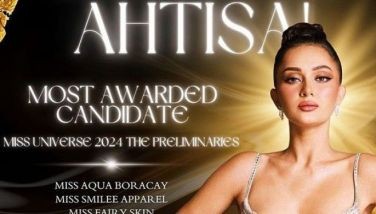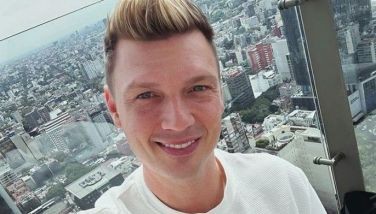Coming full circle
When I was young, I was very religious and I observed all the rituals/trappings of religion. More than that, I wanted to become a priest, or a physician. (I was brought up by very humble physician parents, who opted to serve rural folks. I was schooled by very humble missionaries, who opted to serve in remote areas very far from their home. I wanted to emulate them. To this day, the virtues which I try to practice (acquire?) are humility, sacrifice, and service.) Well, I ended up being neither priest nor physician. Instead, I became a student of science. My odyssey as a student of science has been quite exciting.
After my baccalaureate degree, I went away to graduate school to get a Ph.D. It took a lot of hard work to get my Ph.D. and it felt good when I did.
As I wrote in a previous article, to get a Ph.D. you have to do something original (that is, you solve a problem that nobody had solved before, or you make a key observation, etc.). Then, you have to write a book (the thesis) about it and defend your work before a panel of experts. And when you are awarded the Ph.D., you feel very proud of yourself — and rightfully so. You have done something that nobody had done before, so chances are you know more about it than anybody else in the world. And having solved an original problem, you feel that you can solve other problems.
“I have done it before, I can do it again†is something that I still tell myself to this day.
For my Ph.D., I worked on the structure of a protein molecule (the hemoglobin of a marine annelid worm). Afterwards, I worked on several other protein molecules. For example, I contributed to the knowledge of how antibodies work and how to make antibodies work even better. Now, I am even trying to contribute to ways of eliciting antibodies for the prevention of disease (I am now into vaccine design). I feel I am making significant contributions. I feel I can make more contributions, solve more problems. I even feel that I am contributing to the understanding of life itself.
As Linus Pauling had said, “Man is simply a collection of molecules†and “can be understood in terms of molecules.†Pauling might very well be right, so I feel I am doing service.
But I’m being proud. I’m not being humble.
And frequently, the need for humility is obvious. When people ask me questions about science, I often hear myself saying, “I don’t know!†I really don’t know. You see, although I know a lot about my own work, I know next to nothing about the work of others. Moreover, what I know is infinitesimal when compared to the huge amount of knowledge that is already known today.
I often quote this saying because it is so humbling:
“The more you study (the more you know), the more you realize how little you know.â€
Indeed, when I look at a seed, I marvel at the fact that it can grow into a big tree. It is obvious that what I have done and whatever else I might do cannot compare with what a seed can do. I know that even if I had started studying seeds from the very beginning of my scientific career, I still would not be able to learn all that a seed does to become a full-grown tree. And why are some people more artistic than others and some are more analytic? (And some are both!) These are two things just around me which I cannot comprehend. There are many others. And there is so much more in the entire universe which I can never hope to learn, much less explain.
Like most scientists, I was taught the theory of evolution. And I have come to believe that everything in this world has happened by chance and that what has survived in the history of this world is simply due to natural selection.
Now, really! What a seed can do is simply a consequence of natural selection and everything a seed does just started out as an accident?
After learning more science, one starts to wonder if evolution can explain everything, or even just the little things that we see around us. Indeed, the probability that chemistry and physics combine in just the right way so that a seed will grow into a tree is so infinitesimally small. And that’s just one biological process, just one form of life. There are many, many others. So, one starts to question the very notion of evolution.
But, what if evolution is guided (by a Supreme Being)? Now, that would explain a lot of things. Inevitably, one starts thinking about religion and its teachings. Eventually, one becomes religious? Eventually, I will become very religious again?
* * *
Eduardo A. Padlan was a research physicist at the US National Institutes of Health until his retirement in 2000. He serves as an adjunct professor in the Marine Science Institute, University of the Philippines Diliman, and is a corresponding member of the NAST. He may be contacted at [email protected].
- Latest




























